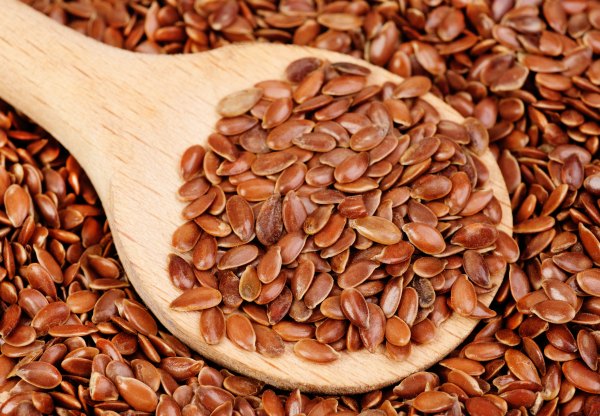Ginger water has long been a staple in traditional Ayurvedic and Chinese medicine, celebrated for its warming, detoxifying, and anti-inflammatory properties.
Made simply by steeping fresh ginger in hot water, this soothing drink offers a natural way to improve overall health, aid digestion, and strengthen immunity. However, like any health remedy, moderation is key — as overconsumption can lead to unwanted side effects.
Here’s a detailed look at the top benefits and potential side effects of consuming ginger water, along with expert-backed insights on when and how to drink it.
Top Benefits of Ginger Water
1. Aids Digestion and Relieves Nausea
Ginger water is one of the best natural remedies for easing an upset stomach, bloating, and indigestion. The compound gingerol in ginger stimulates saliva and bile production, promoting smoother digestion. It also helps relieve motion sickness, morning sickness, and nausea caused by medication or chemotherapy.
Tip: Drinking warm ginger water 20–30 minutes before meals can help prime your digestive system.
2. Strengthens Immunity and Fights Infections
Rich in antioxidants and antimicrobial compounds, ginger water can help strengthen the immune system and protect the body from bacterial and viral infections. Regular consumption may reduce the frequency of common colds and sore throats. Adding a few drops of lemon or honey enhances its infection-fighting properties.
3. Supports Weight Loss and Metabolism
Ginger water can aid to boost metabolism and support fat burning by improving digestion — the body’s natural process of heat production. It also helps control appetite, reducing overeating and cravings. Studies suggest that ginger may help maintain stable blood sugar levels, which is important for long-term weight management.

4. Reduces Inflammation and Joint Pain
Thanks to its anti-inflammatory compound like gingerol, ginger water may provide relief from arthritis, muscle soreness, and joint pain. Regular intake can lower inflammation markers in the body, easing chronic conditions such as osteoarthritis or rheumatoid arthritis. For best results, pair ginger water with an anti-inflammatory diet rich in leafy greens, turmeric, and omega-3 fats.
5. Improves Heart Health
Drinking ginger water daily may help reduce cholesterol levels and promote smoother blood flow. This supports overall cardiovascular health and may lower the risk of heart attack and stroke. Research has also linked ginger consumption to improved blood pressure control, particularly in people with mild hypertension.
6. Detoxifies the Body and Enhances Skin Health
Ginger water acts as a natural detox drink, flushing out toxins and improving liver function. Its antioxidant content helps combat free radicals, which can accelerate skin aging. Over time, this may lead to clearer, brighter skin and a natural glow — especially when combined with a balanced diet and proper hydration.
7. Relieves Menstrual Discomfort
Women suffering from menstrual cramps or PMS symptoms can benefit from warm ginger water. Its natural anti-inflammatory effects help relax the uterus, easing cramps and discomfort. Drinking it during the first few days of the menstrual cycle can bring noticeable relief.
Possible Side Effects of Ginger Water
While ginger water is safe for most people, excessive intake or sensitivity to ginger can lead to side effects. As they say for everything in life, ‘too much is too bad’. Here are some to watch for:
1. Stomach Irritation or Heartburn
Large amounts of ginger may irritate the stomach lining, leading to acidity, gas, or heartburn — particularly if consumed on an empty stomach.
2. Lowered Blood Sugar Levels
Ginger can lower blood sugar, which may cause dizziness or hypoglycemia in diabetic patients who are already on medication. It’s best to consult your doctor before making ginger water a daily habit.
3. Increased Bleeding Risk
Ginger has mild blood-thinning properties. People taking any kind of blood related drugs or scheduled for any medical operation should use it cautiously to avoid excessive bleeding.
4. Allergic Reactions
Though not so common, some people may develop skin rashes, itching, or swelling due to ginger sensitivity. If such symptoms occur, discontinue drinking it immediately.
5. Risk During Pregnancy
While small amounts help with morning sickness, consuming large doses of ginger water during pregnancy may increase the risk of uterine contractions. Pregnant women should limit intake and always consult a healthcare provider/doctor or an expert before consuming it.

Ginger water is a simple yet powerful home remedy that offers numerous health benefits — from boosting immunity and aiding digestion to supporting heart health and detoxification. But as with all natural remedies, balance is key. Start with small amounts, observe how your body responds, and make it a part of your routine, if the effects suit your body.
How and When to Drink Ginger Water
- Morning Detox Drink: Sip a warm glass on an empty stomach to kick-start digestion.
- Before Meals: Enhances metabolism and prevents bloating.
- After Meals: Aids digestion and relieves gas.
- Bedtime: Helps relax the body and promotes better sleep.
Pro Tip: Boil 1–2 inches of fresh ginger root in 2 cups of water for 5–10 minutes. Strain and drink warm. Add lemon or honey for flavor and extra benefits.
FAQs on Ginger Water
1) How much ginger water should I drink every day?
Most experts recommend 1–2 cups daily, made with about ½ to 1 teaspoon of grated ginger per cup of water. More than this may cause irritation or side effects.
2) Can I drink ginger water every day?
Yes, it’s safe for most people when consumed in moderation. However, individuals with any medical condition or on any medication should consult their doctor first.
3) Can children drink ginger water?
Yes, small amounts of mild ginger water is generally considered safe for children above 5 years, especially for relieving colds or mild nausea. Avoid giving it in large quantities.



